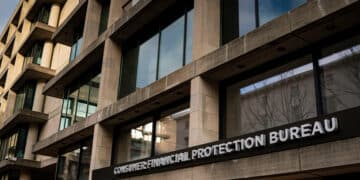Another ‘unfathomable’ decision: Colorado loans not valid when made
On June 9, the Colorado District Court issued an order stating that federal interest rate exportation authority under Section 27 of the Federal Depository Insurance Act does not extend to nonbank entities that purchase loans from out-of-state banks; thus Colorado’s usury limit applies to the loans to restrict the interest those nonbank purchasers may accrue and collect.
The Colorado Uniform Consumer Credit Code (UCCC) Administrator has brought two actions against nonbank participants in bank partner loan programs who purchased loans from the originating bank. In both cases, the UCCC administrator alleged that the nonbank purchaser was the “true lender” because it has the predominant economic interest in the loan, and/or is engaged in other significant lending-related activities, such as servicing.
Although a decision has only been issued in one of the two cases, both are significant: If the district court’s opinion is upheld or followed by other courts, other state regulators, specifically those in other UCCC states, may try to initiate similar actions against nonbank purchasers. It should also be noted that the defendants in these cases include the trustees of securitization trusts and special purpose vehicles that acquired the loans, which expands the scope of potential liability.
The court’s analysis was a bit surprising in a number of ways. First, the court dismissed the rules from the Federal Deposit Insurance Corporation (FDIC) and Office of the Comptroller of the Currency (OCC) as not meriting consideration because they were not in effect, despite acknowledging that the agencies are entitled to deference. Although the bank at issue is an FDIC-insured depository institution, it was odd to see the court note that the OCC’s rule was not in effect despite its final rule issued May 29, over a week prior to the decision, which held that “interest on a loan that is permissible under 12 USC 85 shall not be affected by the sale, assignment or other transfer of the loan.”
Second, the court’s analysis mixes the core principles of the arguments for “valid when made” and “true lender,” concluding that the originating bank cannot “export” its interest rate authority to the nonbank purchaser. The originating bank is not attempting to “export” its interest rate authority, but rather the originating bank assigns a loan to the nonbank purchaser. The nonbank purchaser, in turn, asserts that the terms of the loan were valid when made by the originating bank because the loans have an interest rate permitted by the law of the state where the bank is located, and federal law permits the originating bank to export that interest rate to borrowers in other states. Third, the court’s ruling does not discuss the common law principles of assignment that support the ability of an assignee of a contract to enforce the contract according to its terms.
We expect this decision to be promptly appealed to the Colorado Court of Appeals, where we hope that the issues will be more robustly analyzed and the federal agency rulemaking and legal authority cited therein will be given due consideration. In the meantime, however, this decision is likely to restrict access to credit in Colorado, as national and state-chartered banks will be unable to recover fair value for loans they originate due to the risk that a purchaser will not be able to collect the interest due. This will inevitably force banks to hold these loans on their balance sheets, instead of selling them to third party purchasers and freeing up capital for additional loans.
The decision also adds more uncertainty to bank partner lending models and calls into question the ability of federal regulators to remedy that uncertainty in the absence of legislation, or at least a rule that settles the True Lender issue.
Arthur Rotatori is a Member practicing consumer financial services compliance law in McGlinchey’s Cleveland office.
Jeremy Rzepka is an attorney in McGlinchey’s Consumer Financial Services Compliance practice group. He provides regulatory and compliance counsel to banks, finance companies, mortgage companies, online lenders and fintech startups out of the firm’s Cleveland office.
Robert Savoie is a Member in McGlinchey’s Consumer Financial Services Compliance group, based in Cleveland.
Auto Finance Summit, the premier industry event, returns October 20-22, 2020, as a virtual experience. The virtual experience will offer the same quality networking and education as past events, all through an online platform. To learn more about the 2020 event and register, visit www.AutoFinanceSummit.com.






